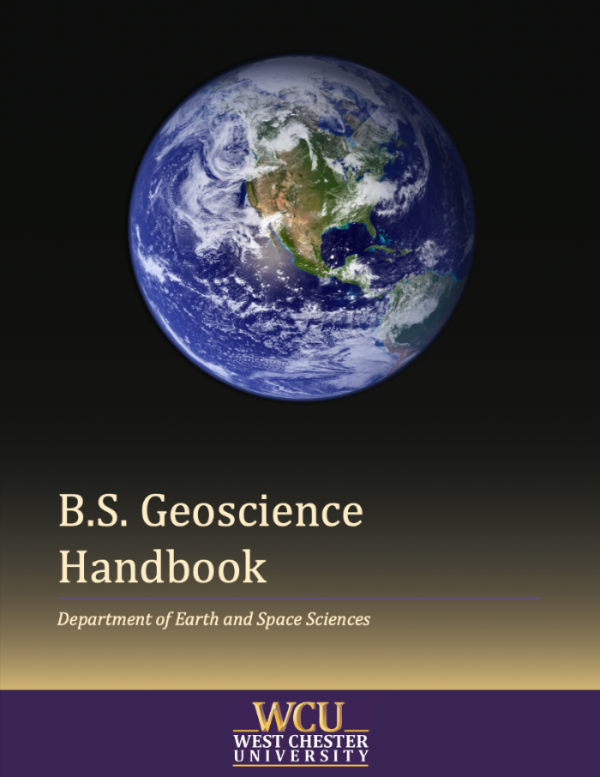Undergraduate Programs
B.S. Geoscience
The B.S. in GEOSCIENCE program offers two areas of concentration and prepares recipients for a career as a professional geoscientist. Students completing either Bachelor of Science degree program possess the educational requirements to seek licensure as certified professional geologists.
- The Geology concentration leads to occupations in geology, geochemistry, and the environmental industry as well as for studies toward advanced degrees. Its curriculum emphasizes depth in the traditional disciplines of geology including mineralogy, rock formation, paleontology, structural geology, and surface and tectonic processes.
- The Earth Systems concentration is intended for students who want to concentrate on a broader understanding of geoscience and human interaction with the environment. This concentration is excellent preparation for students pursuing careers in fields such as resource management, environmental law, or environmental consulting. In addition to the geology core, students take required courses in oceanography, meteorology, and astronomy.
With a Bachelor of Science degree, students will be able to demonstrate:
- Knowledge of fundamental geoscience content at a level comparable to a national sample of geosciences majors
- Effective oral presentation skills, writing, and technological skills through performance assessments
- Information literacy and critical thinking skills relevant to conducting research
- Ability to collaborate and engage in mutually-beneficial relationships with peers and external stakeholders
Degree Requirements
(120 semester hours)
Completion of all General Education Requirements (48 semester hours)
Concentration in Geology (24 semester hours)
- Additional math and computer science requirements (6-7 semester hours)
- MAT 143 or 161 and ESS 321 or IND 401 or GEO 324 or 325 or CSC 115 or higher
- Required courses (9 semester hours)
- ESS 201, 439, and ESS/BIO/ENV 102
- Geology and astronomy electives at either the 200, 300, or 400 level (9 semester hours)
Concentration in Earth Systems (27 semester hours)
- Additional math requirement (3 semester hours)
- MAT 115 or 131
- Additional science cognates (3 semester hours)
- BIO 110 with a grade of C- or better
- Required courses (15 semester hours)
- ESS 311, 201 or 355, 330, 370, and ESS/BIO/ENV 102 or SCB 210
- Geology and astronomy electives (6 semester hours)
- Any two ESS courses at the 200, 300, or 400 level
A more detailed description of all courses can be found in the undergraduate catalog.

